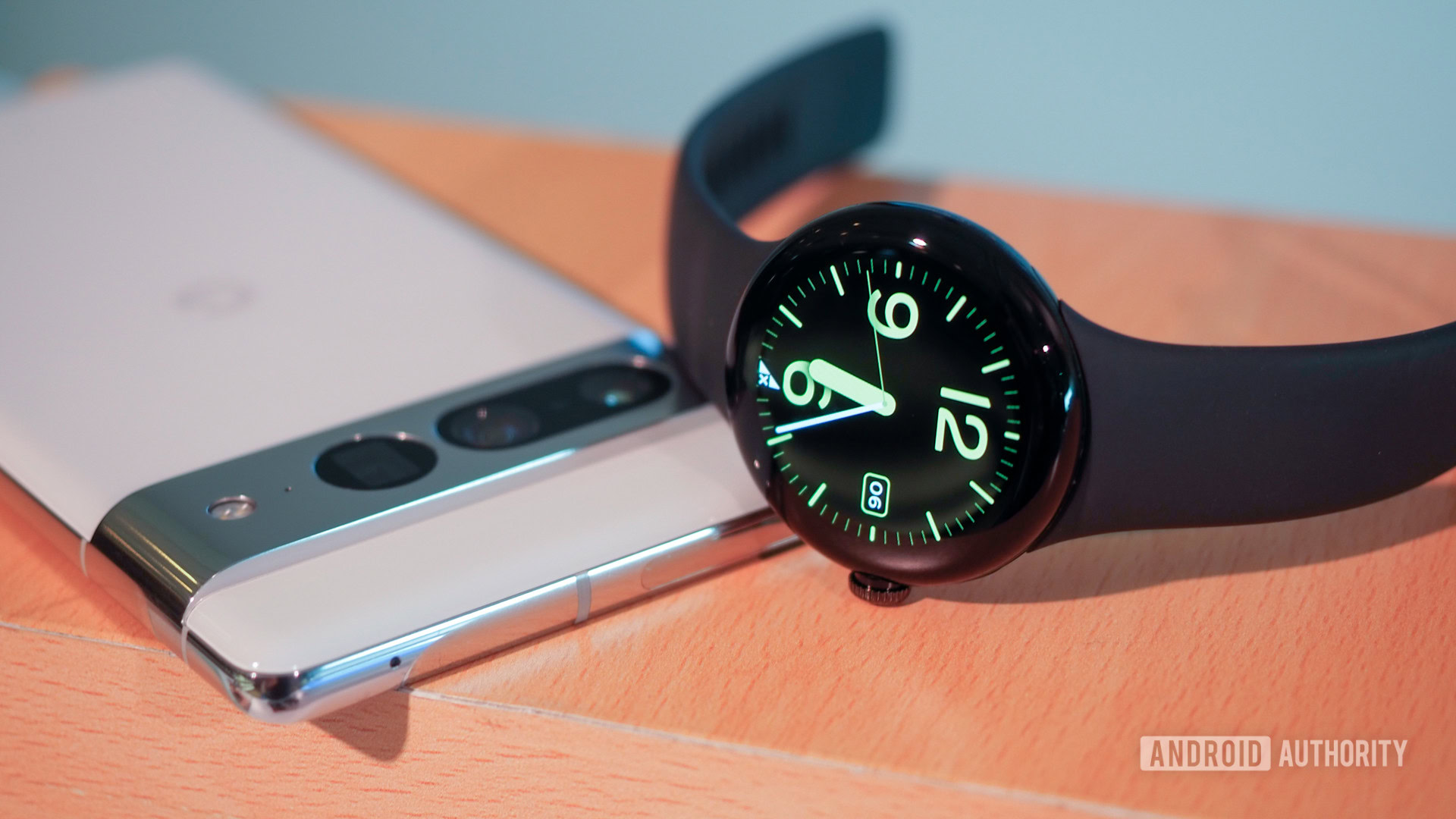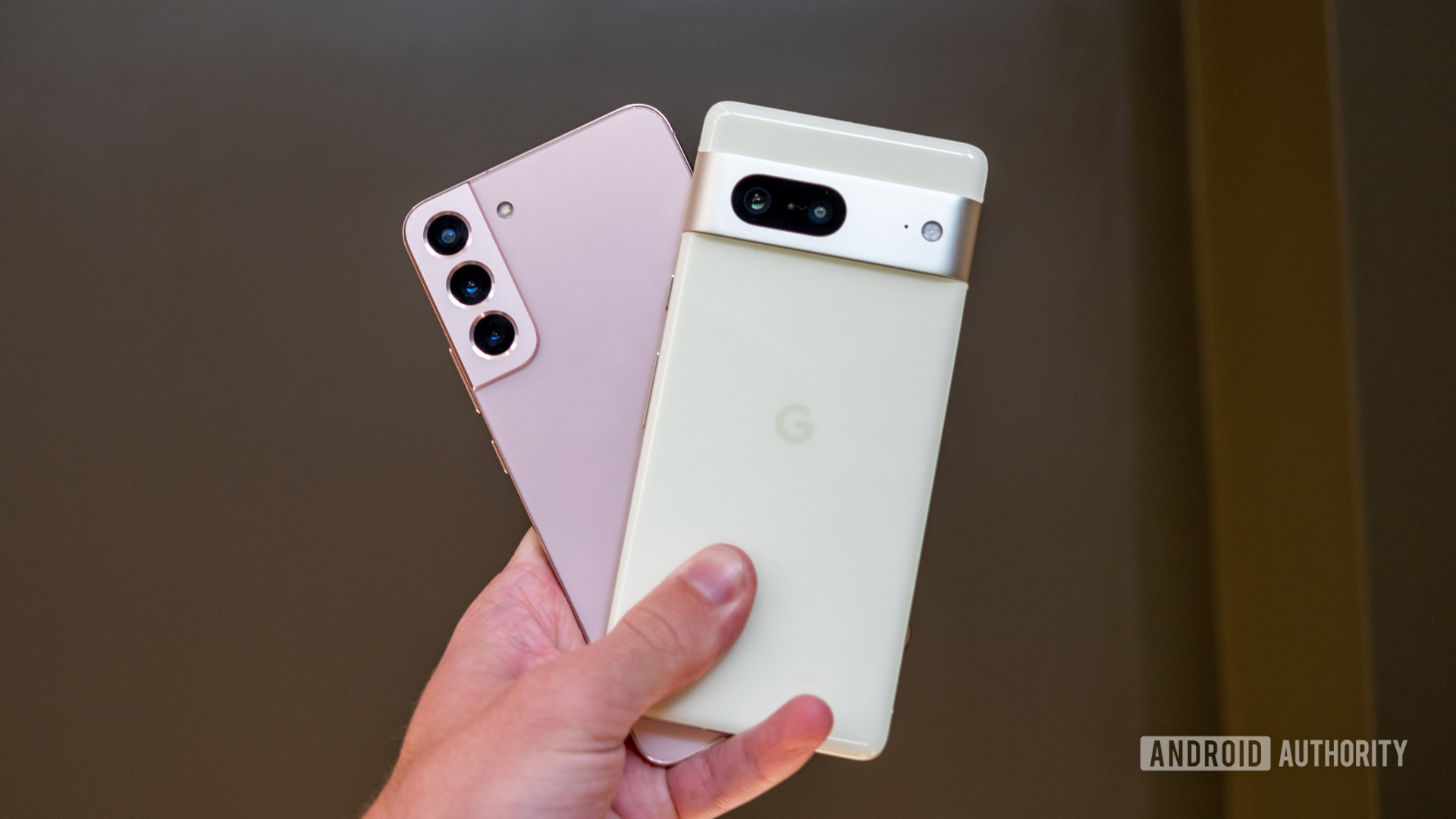Hey Google, A $350 Smartwatch Deserves More Than 3 Years Of Software Updates

Rita L Khoury / Android Authority
After years of rumors and leaks, Google finally unveiled the Pixel Watch earlier this week. However, the company left out one important detail during the presentation: how long it will support its first Wear OS smartwatch. Fortunately for us, Google's product documentation website provides more details. Like the Pixel 7 series, the Pixel Watch will get guaranteed software updates for three years, until October 2025 (Pixel 7 phones will get another two years of security updates).
If the operating system's three-year promise isn't too impressive, rest assured that it isn't. Let's start with the Pixel Watch. It currently faces two major competitors and both easily beat Google in terms of support. The Samsung Galaxy Watch 5, which is based on the same foundation as Wear OS, will receive four years of software updates. Meanwhile, the Apple Watch Series 8 will be supported for a full five years based on past trends.
Samsung and Apple offer legacy software support for their respective phones and smartwatches
As a potential Pixel Watch buyer, it's disappointing to know the watch is already working. If I don't pick one at launch, I'll buy a product closer to the specified expiration date. While I agree that Google has to draw a line somewhere, three years is not long enough for a device that will sit on the shelves for a third of that time.
Also, given Google's tendency to discontinue services it likes, I'm a little wary of buying first-gen products. While I doubt it will share Stadia's fate, Google's reluctance to make long-term commitments doesn't inspire confidence. On the other hand, long-term updates will keep Google's promise, even if the company's first-generation products fail, which will be costly for the company. In fact, the Galaxy Watch 5 seems to be the safest bet, and that's before the price drops. Samsung's offering is 25% cheaper than the Pixel Watch.
Long-term support may inspire more confidence in Google's early hours.
Before the announcement, I expected the Pixel Watch to become the industry standard for long-term software support like the Nexus series. Instead, I'm now reminded of how much has changed since late 2010. Most Wear OS smartwatches back then, including my second-generation Moto 360, only received software updates every two or three years.
Opinion: The Pixel Watch won't work if Google reuses the same 8-year-old formula

Ryan Haynes / Android Authority
It's not just the Pixel Watch that disappoints on the software update front; The Google Pixel 7 series will also receive three Android version updates. You'll still see security patches for a few years beyond 2025, but don't expect any new features to arrive.
When Google announced that they were using custom silicon for the Pixel series, many speculated that the move would lead to a longer support window. This makes sense because Google no longer has to rely on third-party chipset vendors to provide updated driver releases or support. But while Google negotiated with Qualcomm to offer three OS updates for Snapdragon SoCs released after 2020, the search giant isn't breaking that standard for its own devices. It is not clear why. Cost is still an obstacle, perhaps due to the Pixel's relatively small sales volume.
The Pixel 7 series will receive three operating system updates and five years of total security updates.
In the meantime, Google has joined the competition. Xiaomi was once derided among Android fans for its inconsistent software support. However, the company has promised to provide three years of OS updates and four years of security patches for the Xiaomi 12 series To be clear, you get an extra year of security updates with the Pixel 7, but that's only a small win When you think about how advanced Google was.
And then there's Samsung. The South Korean company is now the leader in the Android market when it comes to software support. With four years of operating system updates and a total of five years of security patches, it can't match Apple's incredible record. For some context, the iPhone 8 2017 received the iOS 16 update this year. Samsung's update policy also applies to mid-range smartphones like the Galaxy A53 5G, which competes with the affordable Google Pixel 6a rather than the Pixel 7 and Pro.
Google has to update the operating system for more than six months if it wants to compete with the iPhone.
Of course, there is an advantage to owning a Pixel - you get software updates before anyone else. Android 13, for example, hasn't made it to most non-Pixel smartphones yet. Although Google hosts a beta program every year, most manufacturers seem to accelerate development after the stable release.
However, quick updates don't replace a short support window. I'd also say that many Pixel owners, at least today, are buying into the clean and feature-rich Google Pixel UI ecosystem. These demanding users are more likely to compare their smartphone's software longevity to the gold standard. If Google wants to sell a premium experience that rivals the iPhone, more than six months of OS updates will be needed. And most importantly, we still need Google to lead by example and move the Android industry forward. I doubt Samsung and Xiaomi would have improved their policies if not for the competition.
Are three-year software updates important to you?
946 votes
However, I hope Google will consider increasing its commitment to long-term software updates in the Pixel ecosystem, if not for the sake of consumers, at least for the sake of the environment. The smartphone device has reached a point of diminishing returns, and with Google's self-improvement and other sustainability initiatives, we should have the ability to continue using our existing devices for much longer.
See also: Time to cast off our charms for the annual cycle of renewal






Post a Comment for "Hey Google, A $350 Smartwatch Deserves More Than 3 Years Of Software Updates"